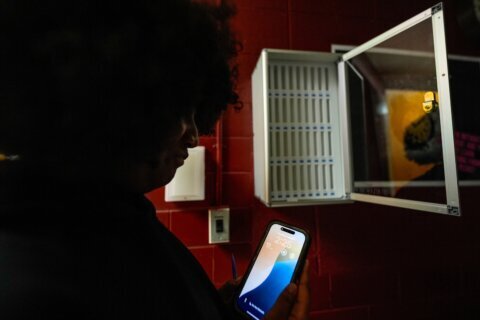Recently, I went on vacation where a primary goal was not only to relax, but to have a digital detox. Things had been pretty stressful with work and family, and vacation was just the antidote I needed. No screens was a natural part of that.
I spoke with my family and the friends with whom we were traveling, and we all agreed that we would do our best to have technology-free zones. I did check email every morning and every night, mostly deleting emails that didn’t need any attention and ensuring that there were no emergencies at the office. Otherwise, I went back to basics: reading books, and not on my iPad or Nook; using a traditional camera; and leaving my phone behind. For the most part, everyone else did, too.
Although initially an experiment, what we all realized was that we were so tethered to the devices in our hands that we often forgot to look up and really take in the beauty of the lives we were living. Without the electronics to distract us, we engaged and laughed more and had more genuine interactions with one another. How much were we missing when we didn’t do this?
[Read: How Electronics Could Be Affecting Your Child’s Health.]
As parents, we have to model how to use electronics in a beneficial way, not just as distraction or as a primary way of connecting with others. It’s often hard to remember that this is an important piece of the interpersonal puzzle. Many of us have forgotten how to sit with our own thoughts or just enjoy the world around us. We seem to constantly need the distraction, missing what is happening right in front of us. Imagine, then, what we are missing with our children when our heads are down.
Studies indicate that all of the social media usage is actually increasing depression and anxiety amongst young people. I imagine that this is true for all ages. Psychologist Jean Twenge, who has labeled this generation iGen, has done a great deal of research noting that, all other things being equal, the increase in anxiety and depression is linked with the advent of the smartphone. The motivation to get “likes,” earn followers and be the most popular is creating a sense of loneliness and disconnection. This is the exact opposite of what we would like children to experience.
I can imagine your first thought is, “There is no way that I can avoid Facebook or Instagram or leave my phone at home.” The entire idea seems foreign to many of us. But it’s possible to make meaningful changes that can have a positive impact on your family. The key is to set some simple guidelines and work toward letting go of the technology dependence.
[Read: How to Customize a Healthier Approach to Screen Use for Your Family.]
Start small. Choose an hour a day to be completely tech-free. Slowly build from there. Some apps, like Forest, help with putting down the phone. When the app is running, a tree or a bush grows, providing some positive reinforcement as you do other things. As you feel more comfortable with the small accomplishments, add time on.
Pay attention to your usage. Sometimes we don’t even know how we are using our phones. There are many apps that help us to understand how long and in what way we are on the phone. Apps such as Moment allow us to see where we put our attention. It can be helpful to know how you’re spending your time when you’re using your phone. Is it all social media? Maybe you’re reading a great book or listening to a podcast. Knowing how you use things is as important as understanding why.
Buck the urge to surf. When things are quiet, or you’re sitting by yourself, you may have the inclination to pick up your phone. Just notice it and notice how, if you don’t act on that impulse, it passes.
Remove apps. Take social media apps off your phone and turn off any notifications. Research has shown that notifications activate our dopamine receptors, which cause us to feel good and excited, leading us down the phone rabbit hole. If you shut them off, it doesn’t mean you won’t feel good, it just means you’ll feel less anxious and inclined to jump on your phone rather than stay in the moment. Additionally, taking the apps off your phone means you’ll be less tempted to use your phone as often.
[Read: Is Your Child Ready for a Smartphone?]
We are not going to be able to avoid technology in our lives. The key is to understand how to use it the best way possible. The more we can engage in the “real” world, the more grounded and present we can feel in the online world. As parents, it’s important to be able to recognize the difference and to be fully engaged in our children’s lives. As we are engaged with them, they will feel more empowered and emboldened to take on the world themselves — both digitally and in person.
More from U.S. News
7 Ways Technology Can Torpedo Your Health
6 Ways to Help Kids Combat Materialism
10 Fun, Fresh Ways to Work Out Together as a Family
4 Ways to Cut Your Screen Time originally appeared on usnews.com







